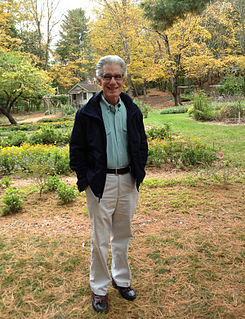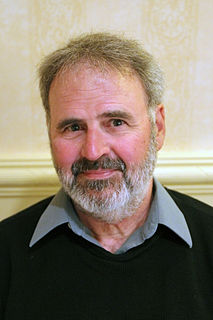A Quote by Scott Adams
Computers and rocket ships are examples of invention, not of understanding. ... All that is needed to build machines is the knowledge that when one thing happens, another thing happens as a result. It's an accumulation of simple patterns. A dog can learn patterns. There is no "why&rdqo"; in those examples. We don't understand why electricity travels. We don't know why light travels at a constant speed forever. All we can do is observe and record patterns.
Related Quotes
There are only patterns, patterns on top of patterns, patterns that affect other patterns. Patterns hidden by patterns. Patterns within patterns. If you watch close, history does nothing but repeat itself. What we call chaos is just patterns we haven't recognized. What we call random is just patterns we can't decipher. what we can't understand we call nonsense. What we can't read we call gibberish. There is no free will. There are no variables.
Mental patterns do not originate out of inorganic nature. They originate out of society, which originates out of inorganic nature. And, as anthropologists know so well, what a mind thinks is as dominated by biological patterns as social patterns are dominated by biological patterns and as biological patterns are dominated by inorganic patterns. There is no direct scientific connection between mind and matter. As the atomic scientist, Niels Bohr, said, "We are suspended in language." Our intellectual description of nature is always culturally derived.
But actually a code is a language for translating one thing into another. And mathematics is the language of science. My big thesis is that although the world looks messy and chaotic, if you translate it into the world of numbers and shapes, patterns emerge and you start to understand why things are the way they are.
What brings the karmic result from the patterns of our actions is not our action alone. As we intend and then act, we create [our] karma: so another key to understanding the creation of karma is becoming aware of intention. The heart is our garden, and along with each action there is an intention that is planted like a seed. The result of the patterns of our karma is the fruit of these seeds.


































